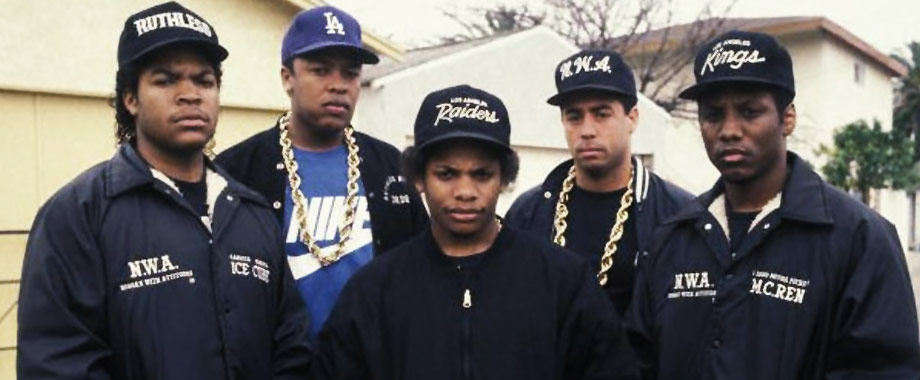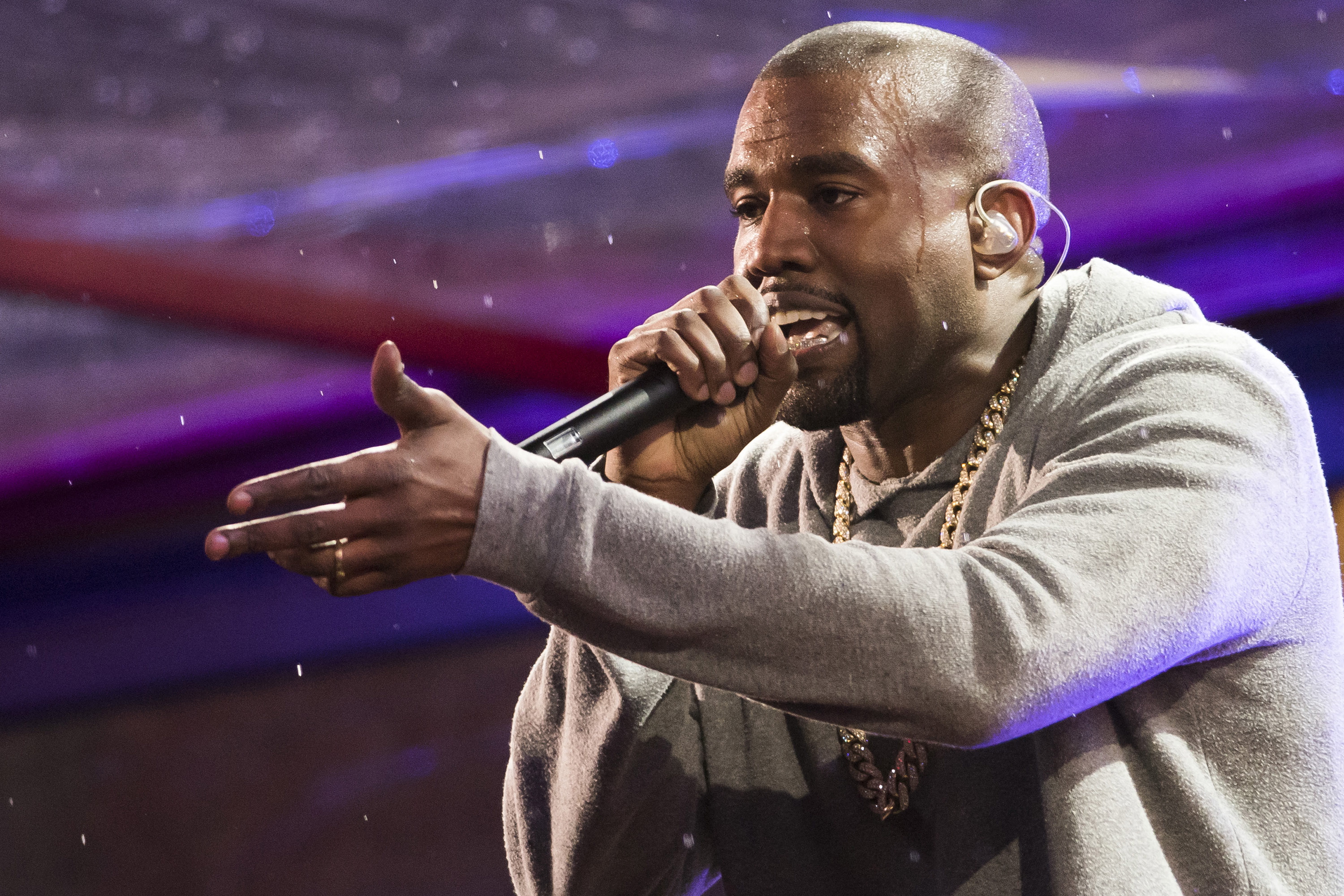From outlaws to icons: N.W.A. goes mainstream with big screen biopic ‘Straight Outta Compton’
By Sandy Cohen
THE ASSOCIATED PRESS
LOS ANGELES _ When N.W.A. released its 1988 debut album, “Straight Outta Compton,” it was vilified by mainstream media. They found the music aggressive, profane and pointedly anti-police. It glorified violence and dehumanized women. Most radio stations refused to play it. It was the birth of gangsta rap, and it was considered dangerous.
A generation later, the leaders of N.W.A. are using “the world’s most dangerous group” as a tagline for their big-studio biopic. These days, Ice Cube is a bona fide movie star and producer who counts family fare such as “Are We There Yet” among his many screen credits. Dr. Dre is a celebrated producer who sold his Beats brand to Apple for $3 billion last year. Both serve as producers of the film, opening Friday.
N.W.A. has gone from outlaws to icons.
“The image of the outlaw was how they were identified,” said professor Todd Boyd, an expert in race and popular culture who teaches at the University of Southern California. “Over time, things that were considered the domain of the outlaw became mainstream American culture.”
Still, Cube and others involved in making the “Straight Outta Compton” film say N.W.A. was never a group of outlaws, but artists determined to speak their minds and air what they saw as injustices in their community.
“We were fearless and honest, and we weren’t going to let society stop our vision of who we thought we were,” Cube said in a recent interview. “I think that just gained more and more respect as people started to see it wasn’t a gimmick, it wasn’t a tone, but it was just who we were and who we wanted to be as artists.”
The biopic shows them not as gangsters, but artists coming of age in a neighbourhood full of trouble, although some critics are saying the era’s misogamy was glossed over in the film.
Cube and Dre started making music together in the mid-1980s, as the crack epidemic was overtaking urban Los Angeles. Gang violence exploded, “Just Say No” was in full swing and police were merciless in trying to eliminate the scourge. With Dre’s beats as a backdrop, Cube ditched the boastful battle raps that were in style at the time and started writing about what they witnessed in their daily lives: Gang-bangers and police who seemed to consider all young black men suspicious.
They caught the attention of Eazy-E, who would become the group’s financier and front man. Along with MC Ren and DJ Yella, the California quintet became N.W.A., which released its first single on Eazy’s Ruthless Records.
The group’s song “(Expletive) the Police” was a cultural flashpoint. Authority figures hated it; young people loved it _ and not just those who shared the rappers’ experiences with racial profiling. Young people of all ethnicities and economic strata identified with N.W.A.’s energy and anger.
“I think it tapped into the rebellious nature of the youth,” said “Compton” director F. Gary Gray, who was among the teenagers moved by the music when it came out. “It transcended race. It transcended music and genre.”
Institutional censure of the group only added to its appeal. Radio stations boycotted the music and there was no Internet, so “Straight Outta Compton” was only available to those who sought it out.
“When you were listening back in the late ’80s, it was like you were listening to something that was illicit,” Boyd said.
Eazy’s 1995 death from AIDS at age 31 cemented his legendary status, but N.W.A.’s shift from marginalized to mainstream was more gradual, part of hip-hop‘s overall growth over the past 25 years.
“When generations come of age, they bring their culture with them,” Boyd said. “There are generations of people now who have grown up only listening to hip-hop and having only understood hip-hop as mainstream culture.”
Among them are the young actors who play Cube, Dre and Eazy on screen. For them, N.W.A. has always existed and the group’s unrestrained self-expression is a critical part of hip-hop.
“They were the first people to really dig in there in a different way and say things that people weren’t trying to hear,” said 26-year-old actor Corey Hawkins, who plays Dre. “Things might have changed, things might have become mainstream, but I don’t think they changed.”
Cube said N.W.A.’s popularity “gave artists a chance to be themselves.”
“Without N.W.A., you don’t have shows like ‘The Osbournes.’ You don’t have ‘South Park.’ You don’t have Eminem. You don’t have Marilyn Manson,” he said. “So I just think we opened up the door for artists to be on any side of the fence they want to be on.”
Profane content is no longer so risque.
Times have changed, too. The young people who grew up loving “Straight Outta Compton” are now the ones who green-light movies.
“This is a major motion picture we’re talking about, which speaks to cultural relevance in a profound way,” Boyd said. “Nobody would have imagined that back in the day.”
___
Follow AP Entertainment Writer Sandy Cohen at
www.twitter.com/APSandy .





